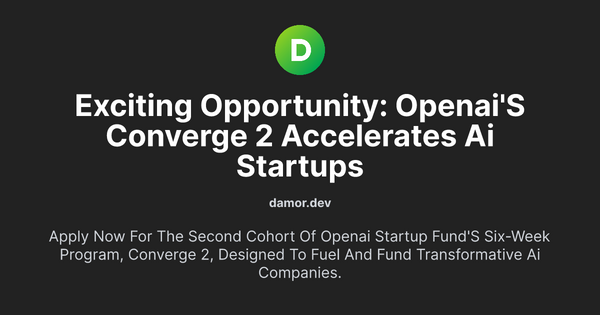Can Intel Catch Up with NVIDIA and AMD?

Intel's AI Push to Challenge NVIDIA and AMD - A Breakdown for Beginners
Intel is gearing up for its 'AI Everywhere' event on December 14, where it plans to make big AI announcements to compete with AMD and NVIDIA. Let's break down what's happening in simpler terms.
1. Gaudi3 AI Accelerator:
- Intel is launching the Gaudi3 chip, a powerful AI accelerator.
- CEO Pat Gelsinger believes it will make Intel a major player in generative AI.
- Gaudi3 is expected to be twice as fast as its predecessor, Gaudi2.
- Gaudi2 is already 2.4 times faster than NVIDIA A100.
2. Gaudi3 Key Features:
- 5nm chip for better performance.
- 4 times BFloat16 capabilities.
- Double the compute power.
- 1.5 times more network bandwidth.
- 1.5 times larger HBM capacities (144 GB).
3. Future Plans:
- Intel plans to merge AI capabilities with powerful GPUs in a single package (Falcon Shores in 2025).
- Ambitious roadmap with a 288-core Xeon CPU in 2023.
- Meteor Lake, set to launch on December 14, focuses on AI acceleration and local inference on PCs.
4. AI PC Concept:
- Intel aims to bring AI capabilities to personal computers with the "AI PC" concept.
- This allows users to run generative AI locally without relying on cloud data centers.
5. Developer Tools:
- Intel offers the oneAPI programming model for building and optimizing AI workloads.
- Project Strata, launching in 2024, supports distributed edge infrastructure.
- Intel Developer Cloud platform provides developers access to the latest CPUs, GPUs, and AI accelerators.
6. Industry Competition:
- Intel is facing competition from NVIDIA's GH200 supercomputer in the CPU market.
- AMD partners with Microsoft and Meta, unveiling AI accelerators and Ryzen AI PCs for on-device computing.
In summary, Intel is making significant moves in the AI space, especially with the Gaudi3 chip and the AI PC concept. The company aims to compete with industry giants like NVIDIA and AMD, offering more powerful and efficient solutions for AI applications.


![[Solved] ZlibError:zlib:
unexpected end of file - payload](/content/images/size/w600/2024/02/Screenshot-2024-02-18-143905.png)


